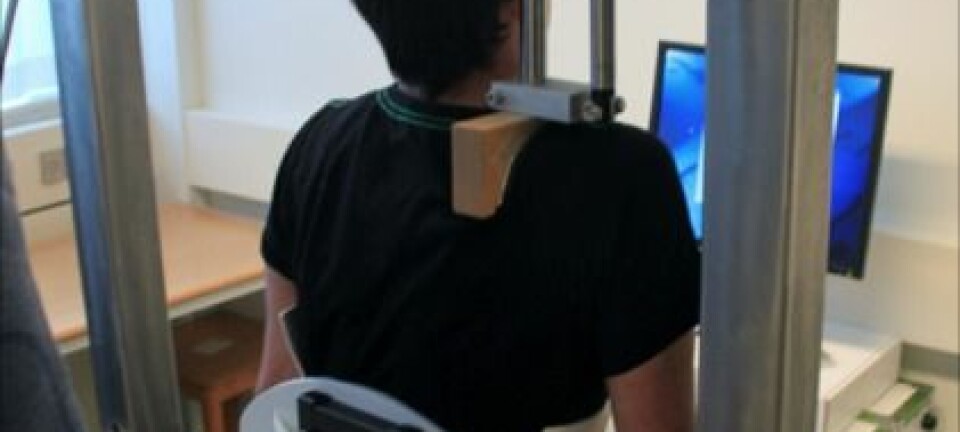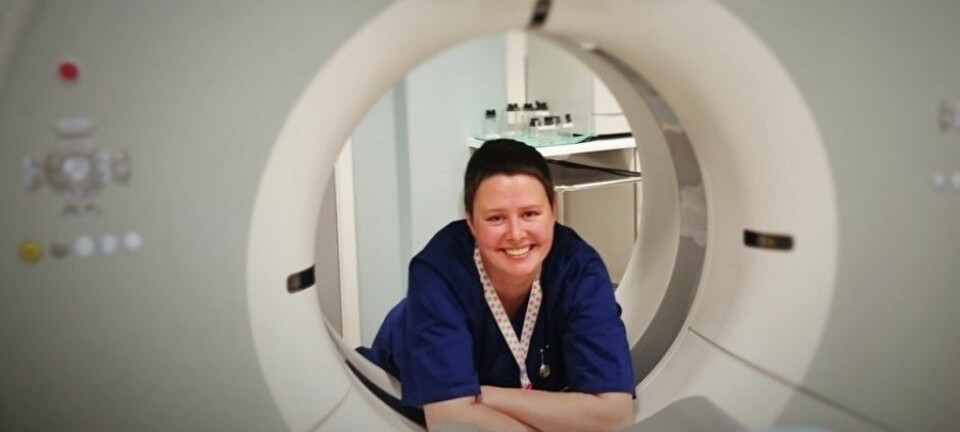
How necessary is the world’s most common shoulder operation?
Patients who received surgical treatment for shoulder impingement fared no better than patients receiving placebo treatment.
Shoulder impingement syndrome is a common source of shoulder pain. Studies from the United States indicate that doctors diagnose 44 to 70 per cent of shoulder pain cases as shoulder impingement.
Treatment often consists of exercises or anti-inflammatory drugs. But for some patients, these approaches don’t relieve the pain. In recent years surgical treatment has become increasingly common, using a method called arthroscopic subacromial decompression (ASD).
However, the efficacy of this type of surgery – beyond a purely placebo effect – has been unclear.
Some doctors have argued that this procedure is undertaken way too often. In 2013, professor and consultant Jens Ivar Brox expressed his views on the topic in an interview with the Norwegian online journal Dagens Medisin.
He believes that most of these shoulder operations carried out in Norway are unnecessary.
Now a Finnish study concurs with his view.
Real operation or just taking a peek
Mika Paavola and his colleagues conducted a randomized, placebo-controlled and double-blind study – the gold standard in medical research.
The researchers compared two groups of patients. One received ASD surgery, while in the other group the surgeon just went in and examined the joint. Laparoscopic techniques were used for both groups.
Then the researchers followed the participants’ progress over the next two years.
Neither the patients nor the researchers knew who had received which treatment.
No difference
It turns out there was no difference between the actual procedure and simply taking a peek at the joint. In both cases patients reported minor pain two years after surgery, but the effect was the same regardless of intervention.
It appears that the specialized operation does not actually have any independent effect on impingement syndrome beyond the placebo effect.
"The findings don’t support today's practice of performing ASD on patients with impingement syndrome, Paavola and his colleagues wrote in their conclusion.
Exercises didn’t work either
Nor does the study support physical therapy treatment. The researchers had included a third group of patients who received a customized exercise programme that included both home exercises and physiotherapist visits.
However, the results showed that both the ASD procedure and the laparoscopic peek actually had a greater effect than the exercises.
However, the researchers warn against attaching too much weight to this aspect of the results. Of course, it wasn’t possible to do a blind test in this group – both the patients and the researchers were aware that the group underwent physical therapy and not an operation. This may have affected the results.
Another point is that the patients in the survey were selected according to very specific criteria. The researchers had only included participants with a high probability of a positive gain from the surgery.
This probably helped lead to better results from the surgery than in a more diverse patient group.
More participants preferable
Paavola and colleagues also point out certain other weaknesses in the study. For example, the researchers recruited somewhat fewer patients than they initially wanted – 59 patients in each group rather than the 68 they would have liked.
However, they believe that the study has a lot of strengths, including that it was double blind and that the patients – by all indications – would benefit from an ASD operation.
The researchers also write that their study is consistent with the results of a similar survey recently published in The Lancet. Similarly to Paavola, this study concluded that ASD does not appear to have any effect of its own on impingement syndrome, and that patients considering the operation should be aware of this.
-------------------------------------
Read the Norwegian version of this article at forskning.no.







